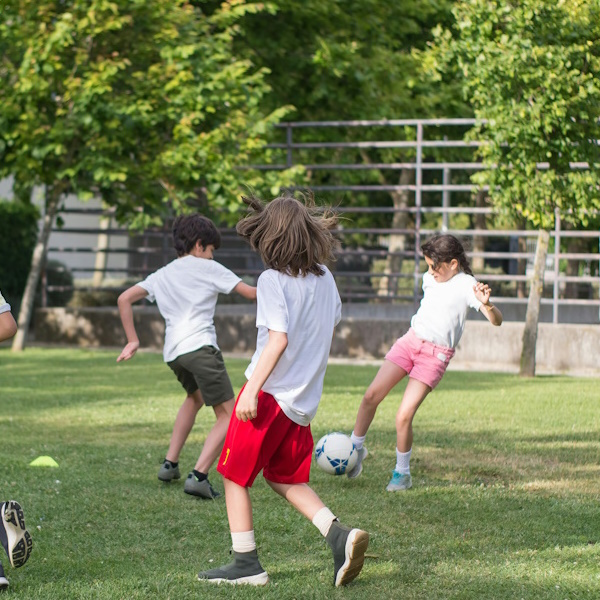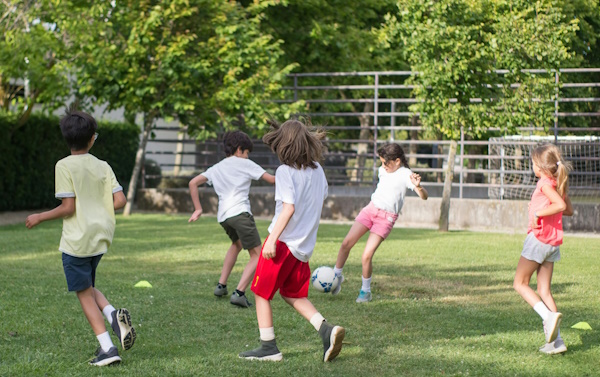Boosting Children's Mental Wellness: Strategies for Parents
In today's fast-paced world, children's mental wellness has become a topic of paramount importance. It's not just about their physical health anymore; ensuring your child's mind is just as nurtured is key to their overall development. From handling school stress to navigating social relationships, the mental well-being of our kids is an area that demands our attention now more than ever.
Understanding the nuances of children's mental health can seem daunting, but it's crucial for their happiness and success. Whether it's recognizing signs of stress or fostering an environment that promotes emotional growth, there's a lot you can do to support your child. Let's dive into the essentials of children's mental wellness, giving you the insights and tools you need to help your child thrive.
The Importance of Children's Mental Wellness
In today's fast-paced and often unpredictable world, the mental wellness of children has become a topic of paramount importance. You might not realize it, but a child's mental health is just as critical as their physical health for their overall development. It's integral to their happiness, growth, and success both in school and in life.
Children, much like adults, experience stress, anxiety, and depression. However, their ability to manage these emotions is often not as developed. This is why understanding and supporting your child's mental wellness is crucial. It's not just about preventing mental health problems; it's about fostering an environment where they can thrive emotionally, socially, and academically.
- Emotional Growth: A strong mental health foundation helps children understand and express their feelings in a healthy way, contributing to their emotional intelligence.
- Social Development: Children with good mental health are more likely to develop positive relationships with their peers and adults.
- Academic Success: Mental wellness impacts a child's concentration, motivation, and overall ability to learn.
- Resilience: By promoting mental wellness, you're equipping your child with the tools to face challenges more effectively, now and in the future.
Recognizing the importance of children's mental wellness is the first step toward creating a supportive and understanding environment. It's about more than just identifying when something is wrong; it's about taking proactive steps to ensure your child feels understood, valued, and supported in every aspect of their life. This involves open communication, patience, and sometimes seeking professional help when necessary.
Every child's mental health journey is unique, and as a parent or caregiver, your role in recognizing and nurturing their emotional well-being cannot be overstated. By prioritizing mental wellness, you pave the way for your child's lifelong happiness and success.
Signs and Symptoms of Stress in Children
Recognizing signs of stress in children is crucial for early intervention and support. Unlike adults, children might not always have the words to express how they're feeling, so it's important for you to be aware of non-verbal cues or changes in behavior that may indicate stress.
Physical signs often serve as the first indicator. These can include headaches, stomachaches, and changes in eating or sleeping patterns. It's common for children under stress to either eat more or less than usual or have trouble falling asleep or staying asleep. Look for these changes as they can be the body's response to ongoing stress.
Emotional and behavioral changes are also telltale signs. Children experiencing stress may become irritable or angry more quickly than usual. They might also show signs of sadness or withdrawal, opting to spend time alone rather than with friends or family. Sudden shifts in mood or behavior should not be overlooked as they can be significant indicators of internal stress.
| Behavioral Aspect | Symptom |
|---|---|
| Physical | Headaches, stomachaches, changes in appetite, sleep disturbances |
| Emotional | Irritability, mood swings, sadness, withdrawal |
Performance in school is another area impacted by stress. A decline in grades, loss of interest in previously enjoyed activities, or an unusual reluctance to go to school can all suggest that a child is coping with stress.
Social interactions can offer further clues. A stressed child might have trouble with friendships, either by showing aggression or by becoming more passive than usual. Paying attention to how your child interacts with peers can provide valuable insights.
Being aware of these signs is the first step in supporting your child through stressful times. Remember, early recognition and response can make a significant difference in your child's mental wellness journey.
Nurturing Emotional Growth in Children
Nurturing emotional growth in your children isn't just important—it's essential for their mental wellness and overall development. In today's world where stress and anxiety seem ubiquitous, ensuring your child has the emotional tools they need is more crucial than ever.
Emotional skills enable children to cope with life's challenges and build strong, positive relationships. But how do you foster these skills? It starts with your example. Children learn how to manage their emotions by watching how the adults in their lives deal with their own feelings. Be mindful of your reactions and model healthy emotional expression.
- Open Communication: Encourage your kids to express their feelings openly. Listen without judgment and validate their emotions. This promotes trust and helps them understand that it's okay to feel sad, angry, or frustrated at times.
- Problem-Solving Skills: Rather than immediately solving problems for them, guide your children in finding solutions. This approach boosts their self-esteem and equips them with the problem-solving skills they'll need throughout life.
- Encourage Empathy: Show them the importance of empathy by demonstrating understanding and compassion towards others. Discuss empathy in daily situations to make it more relatable.
- Setting Healthy Boundaries: Teach your children to set healthy boundaries, both for themselves and in their interactions with others. This is vital for their self-respect and for forming respectful relationships.
Emotional development is a journey that involves learning from experiences. Your role as a parent or caregiver is to guide, support, and sometimes step back, allowing your children to practice their emerging skills in real-life scenarios. With patience and consistency, you'll see significant growth in their emotional resilience and overall wellbeing. Remember, the goal isn't just about handling emotions but also about thriving emotionally in a complex world.
Supporting Children in Handling School Stress
School can be a significant source of stress for children, from academic pressures to social dynamics. Understanding and addressing this aspect of their lives is pivotal for their mental wellness. Here are some strategies to help your child navigate school stress effectively.
Firstly, establish a routine at home that supports school success. This includes a consistent bedtime, a quiet space for homework, and relaxed mornings. Routines provide a sense of security and predictability, which can significantly ease stress.
Encourage your child to talk about their day. Open-ended questions like, "What was the best part of your day?" can prompt more conversation than yes/no questions. Listening to their experiences, without immediate judgment or solutions, lets them know they're valued and understood.
Collaborate on a problem-solving approach when they're facing challenges. Whether it's dealing with a difficult class or navigating friendship issues, help them brainstorm solutions. This not only aids in relieving immediate stress but also equips them with coping skills for future challenges.
Promote a balance between schoolwork and downtime. Children need time to play, relax, and engage in activities they enjoy. This balance is crucial for their mental health and can improve their academic performance by preventing burnout.
Lastly, be a model of stress management yourself. Children learn a lot from observing their parents. Show them healthy ways to cope with stress, such as exercise, reading, or discussing problems with others. Your approach to handling stress can serve as a powerful template for them.
Supporting your child in handling school stress involves a combination of practical strategies, emotional support, and modeling. By taking these steps, you can help enhance their school experience and overall mental wellness.
Fostering Healthy Social Relationships for Children
In today's digitally driven world, fostering healthy social relationships is more important than ever for your child's mental wellness. Social skills are fundamental for children, as they impact everything from academic success to emotional regulation. It's critical to ensure that your child not only develops but also maintains positive social interactions from an early age.
Initiate Open Conversations: Encourage your child to share their feelings and experiences. By asking open-ended questions about their day, friendships, and any challenges they face, you're showing that you're interested and that their thoughts and feelings matter. This transparency fosters trust and comfort in discussing social issues.
Model Positive Interactions: Children learn how to interact socially primarily by watching adults. Model positive social behavior by treating others with kindness, respect, and empathy. Demonstrate how to resolve conflicts calmly and constructively, setting a powerful example for your child to emulate.
Encourage Participation in Social Activities: Exposure to various social settings is crucial. Encourage your child to participate in extracurricular activities such as sports, music, or clubs that align with their interests. These environments offer rich opportunities for developing friendships and learning social cues and cooperation.
Teach Empathy and Understanding: Help your child understand the importance of empathy by discussing feelings and how actions impact others. Role-playing different scenarios can be a fun and effective way to teach perspective-taking and empathy, skills critical for building and maintaining friendships.
Promote Inclusivity: Teach your child the value of inclusivity and the beauty of diversity in friendships. Encourage them to be open to forming relationships with peers who might be different from them, whether in interests, background, or abilities. This broadens their social circle and fosters a deep sense of empathy and understanding.
By taking proactive steps in these areas, you're not only enriching your child's current social experiences but also laying a strong foundation for healthy relationships throughout their life.
Conclusion
Nurturing your child's mental wellness is a vital aspect of their growth and development. By understanding the challenges they face and providing a supportive environment, you're setting the stage for their future happiness and success. Remember the importance of open communication, teaching problem-solving skills, and fostering healthy social relationships. These actions are key to helping your child navigate the complexities of today's world. As you implement these strategies, you'll not only enhance your child's emotional and social development but also empower them to achieve academic success and build resilience. Let's commit to prioritizing our children's mental wellness, for their brighter, healthier future.







